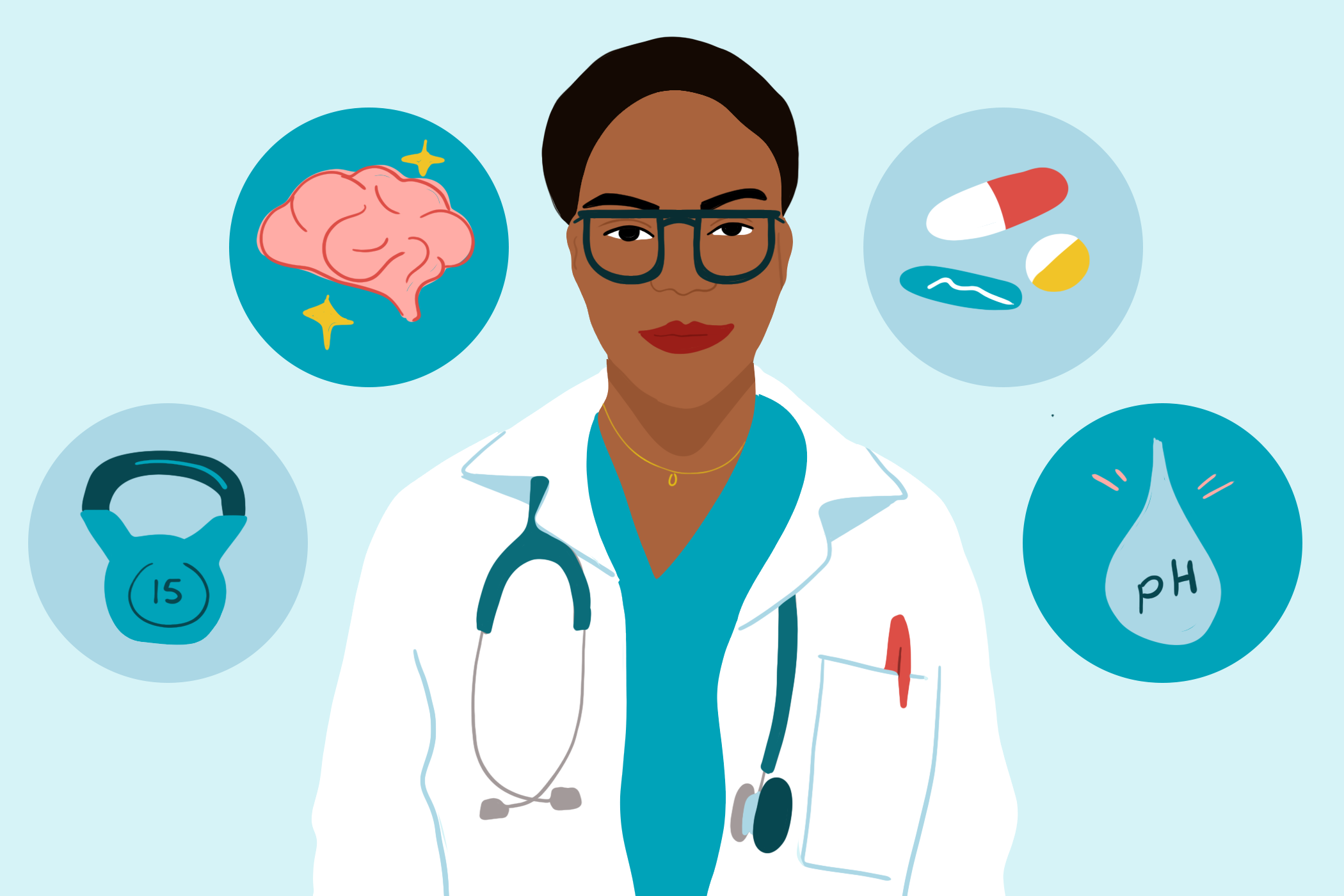
As an OB-GYN, I am asked daily about sexual health and vaginal function. Through conversations, I've learned the vagina may take on negative associations for many and can be seen as a source of pain, discomfort, shame, and blame. Some may see this part of their body as difficult to understand and consequently manage.
That's why I often view my job as that of helping women understand and love their bodies (and vagina) and develop healthy long-term habits. Seriously, love yourself and your vagina!
Sexual health, or what the World Health Organization defines as "the state of physical, emotional, mental, and social well-being in relation to sexuality," is a complicated topic because it can be impacted by other health issues and social factors in our lives. Overall, when I think about sexual health, I think about vaginal health, hormonal balance, and mental health.
Vaginal pH
Something many women may overlook or not realize is that the vagina needs a careful balance of pH in order to function. Think of pH balance of bacteria as the key to feeling comfortable. (Yes, don't forget, we have bacteria everywhere, including down there!).
It's affected by everything we do, including what we eat, exercise, sex, products we use, and even mood. These can all disrupt the careful balance that enables the vagina to be most efficient. The disruption of that balance can cause infections, such as bacterial vaginosis (BV) and yeast, and create a cycle that disrupts our sexual health. Sometimes women can get recurrent infections that lasts months and affect their daily function and sexual relationships. How do you know if your pH is off? If you notice itching, odor, unusual discharge, you should head to your doctor.
We have heard how important diet and exercise is for our cardiac health but it's also important to our vaginal health. Maintaining an optimal body weight prevents excess estrogen accumulation that may result in vaginal moisture and increased infection. So, although you may have heard this health tip before for your general health, I do think that exercise and a good diet (one that is low in sugar) are just as important for maintaining vaginal health!
Remember, less is more when it comes to vaginal health. The vagina is a "self-cleaning oven" because it is naturally able to keep the vaginal balance needed to prevent disease.
Hormones, Hormones, Hormones
As women age, their cycle length and intensity as well as their hormonal balance can also change. This hormonal flux not only make us feel not ourselves, but it can also change our menstrual cycles creating more infections. Heavy and irregular bleeding can both throw off the vaginal pH and result in infection and also dryness. This impacts our sexual health, so regular menstrual bleeding (unless you're on birth control) is a sign of sexual and reproductive wellness.
If you don't have regular menses and you're premenopausal, it's important to see your gynecologist. For women over 40, I would encourage healthy lifestyle changes before starting hormonal medications. If you can achieve hormonal balance through exercise and natural supplements, it's a much better strategy as you age.
Mental Health
Mental health is critical to sexual health and when the mind-body connection is off it can really affect it. Feeling good about yourself, masturbation, and orgasms are all an important part of healthy mental and physical function. Fostering healthy feelings around intimacy will truly help your sexual health, as can cultivating positive relationships with trust and communication.
If you have a history of a mental health condition or feel like you might be suffering, seek counseling and therapy. And remember if sex hurts, see your doctor.
The Bottom Line
Sexual health is an important part of our lives and can be affected by several internal and external factors. Here's my checklist for improving sexual health:
- Exercise- 3-4 times per week is ideal. I love running!
- Minimize weight gain. I aim for a 5-pound range.
- Avoid internal vaginal products; only use external cleansers.
- Achieve hormonal balance.
- Have good communication with your partner and make time.
Dr. Taraneh Shirazian is an associate professor, gynecologic surgeon, and founder and president of Saving Mothers, a non-profit launched in 2009 that is dedicated to eradicating the senseless number of preventable maternal deaths and birth-related complications in the developing world. She's also the founder of Mommy Matters, a social impact company dedicated to women's health education and effective products. Proceeds benefit Saving Mothers.
